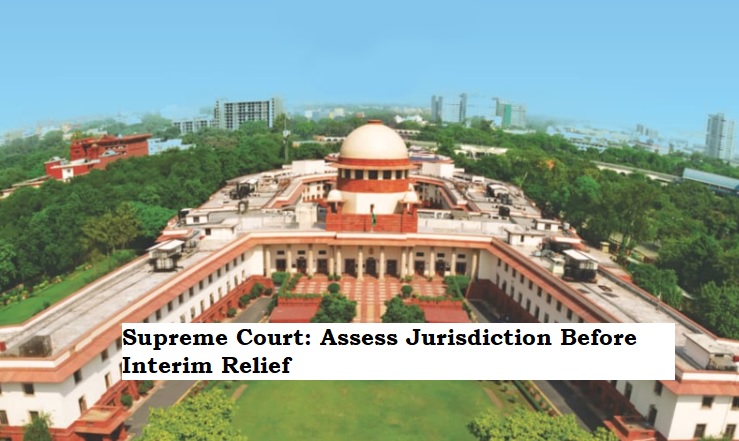


The Supreme Court underscores that when the viability of a civil suit is contested and opposition to interim relief is based on this ground, the trial court must, before deciding on interim relief, establish at least a prima facie satisfaction regarding the suit's viability.
In situations where a party in a civil court suit seeks interim relief, and another party challenges its viability or legal permissibility, the court should refrain from granting relief until it is satisfied, at least prima facie, about the suit's viability or its non-bar under the law.
Granting relief without establishing this prima facie satisfaction could be an improper exercise of power. The court must not bypass recording its initial determination on the question of maintainability, even if it assumes that this issue will be decided as a preliminary matter under Rule 2 of Order XIV, CPC.
If the court believes, during the interim relief application hearing, that the suit is legally barred or not viable, it cannot outright dismiss it without framing a preliminary issue post the submission of the written statement. However, it can certainly express its opinion against interim relief.
Simultaneously, if an extraordinary situation arises where deciding on maintainability would unduly delay interim relief, causing irreparable harm, the court may pass an order after providing proper reasons.
In such extraordinary situations, where time-consuming maintainability decisions may lead to irreversible consequences, the court can make a suitable order to prevent irreparable harm, hardship, or injury to the party seeking relief. This step ensures that the proceedings are not rendered futile due to the court's non-interference.
The court acknowledges that it might be necessary, in exceptional cases, to pass an order allowing interim relief to avoid irreversible harm or hardship. This is especially crucial when awaiting a decision on maintainability might make the proceedings inconsequential.
In summary, the Supreme Court emphasizes a cautious approach when deciding on interim relief in the face of doubts about the maintainability of a civil suit. It directs trial courts to establish a prima facie satisfaction on maintainability before granting or denying interim relief. This approach ensures a balanced consideration of legal viability and the potential for irreparable harm in the context of the specific circumstances of each case.
TAGS: Supreme Court Maintainability Civil Suit Interim Relief Prima Facie Satisfaction Trial Court